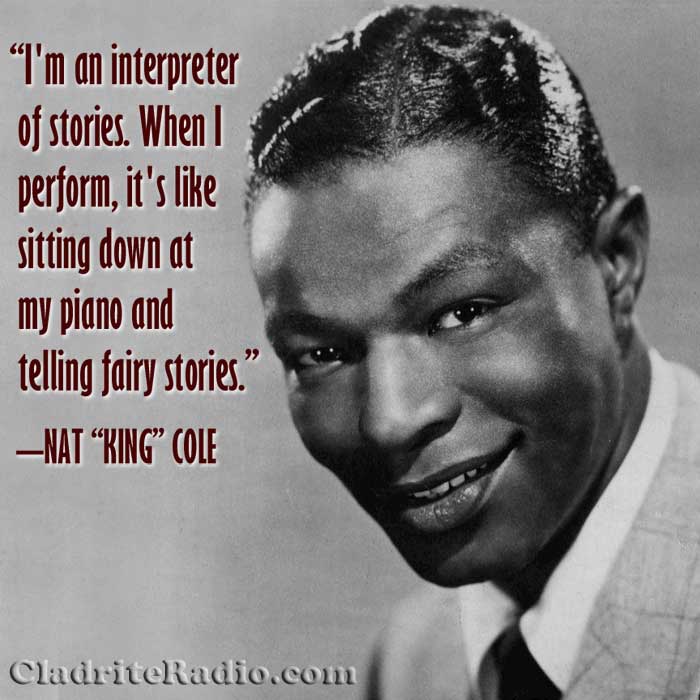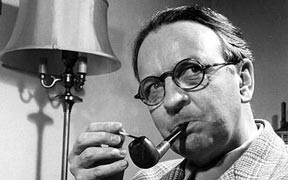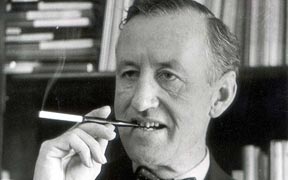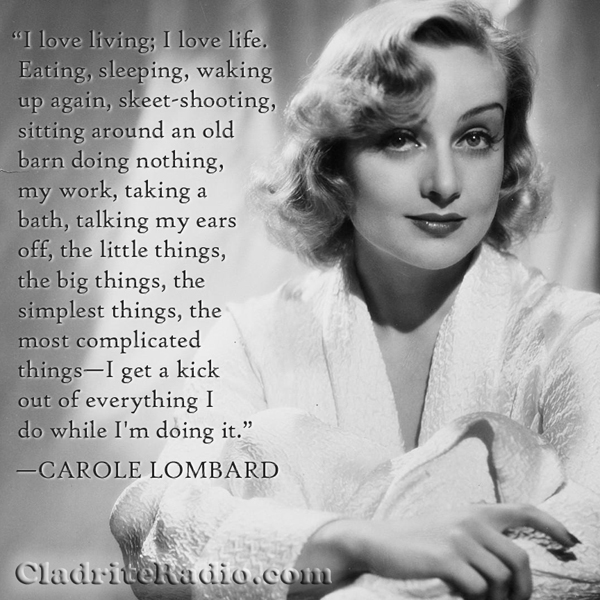Here are 10 things you should know about singer and actress Lillian Roth, born 113 years ago today. She achieved success in vaudeville, nightclubs, concert halls, pictures, radio and on Broadway.
Tag: Las Vegas
Happy 97th Birthday, Nat ‘King’ Cole!
Today Nat ‘King’ Cole, born Nathaniel Adams Coles 97 years ago today in Montgomery, Alabama, is widely associated with his pop hits of the 1950s and ’60s, but his musical career extends much further back, well into the Cladrite Era. He began performing as a jazz pianist during his teen years in the mid-1930s in Chicago. His older brother, Eddie, a bass player, joined his band and the two siblings cut their first record, under Eddie’s name, in 1936. It was during this time that Nat was given his ‘King’ nickname, said to be a play on the Old King Cole nursery rhyme.
Cole hit the road as the pianist in a national tour of Eubie Blake‘s revue Shuffle Along (currently being revived on Broadway), and when the show unexpectedly closed in Los Angeles, Nat decided that Southern California suited him and remained there.

Nat ‘King’ Cole found his first success as part of a trio (though they weren’t yet the King Cole Trio, as they would come to be known, but the King Cole Swingsters). Radio was key to their rise in popularity, and they became a popular act in the Los Angeles area. Nat’s piano playing was his claim to fame, but he had started to add vocals to a number of the tunes in the trio’s repertoire.
In 1943, Nat and the trio signed with the fledging Capitol Records, and their success financed the company’s growth. To this day, the round structure that is the company’s headquarters, built in Hollywood in 1956, is referred to as “the house that Nat built.”
Cole is to this day considered one of jazz’s greatest pianists, but eventually, the popularity of his vocals overtook the acclaim his playing garnered, and his flair for crooning a pop song made him one of the most popular recording artists in the world (it’s not widely remembered today, but in the 1950s, Cole outsold Frank Sinatra by a wide margin).
Cole became so popular that on November 5, 1956, he began hosting his own television show, The Nat ‘King’ Cole Show, on NBC; he was the first African-American artist to host such a show. The show did fine in the ratings, but no sponsor for the program was ever found, a must in those days. Just over a year after it hit the airwaves, Cole pulled the plug on the show. The strain of operating a show without a sponsor’s backing was too much. After the show’s demise, Cole was quoted as having quipped, with a mix of good humor and bitterness, “Madison Avenue is afraid of the dark.”
The program’s failure proved a negligible setback, as the hits kept coming. Cole even recorded a trio of albums in Spanish (phonetic only—he didn’t hablan español). His Spanish was reportedly pretty bad, but many Spanish-speaking listeners found his clumsy efforts charming and his popularity only increased.
A favorite story of ours tells of the time that Cole moved his family into Hancock Park, a all-white Los Angeles neighborhood that was a bastion of old money (by L.A. standards, anyway). The Coles were not made to feel welcome—a burning cross was even placed on their lawn. But when members of the neighborhood property-owners association paid Cole a visit, telling him they didn’t want to see any undesirables in the neighborhood, he is said to have told them, “Neither do I. And if I see anybody undesirable coming in here, I’ll be the first to complain.”
That, our friends, was a perfect response.
We once attended an afternoon question-and-answer session with Debbie Reynolds in Las Vegas, and she mentioned Nat ‘King’ Cole as one of her favorites. We asked her if she had known him well and did she have any remembrances to share? She recalled Cole as exceedingly gentle and kind, widely respected as performer and as a man. She said he wasn’t bitter at the racial prejudice and rancor he’d encountered over the years. “It’ll pass,” she quoted him as saying. “The years will go by and it will all go away.” We wish he’d lived to see the day; we hope we will.
In 1964, Cole began to experience fatigue and back pain until finally, some time after collapsing during a show at the Sands Hotel and Casino in Las Vegas, he was convinced to consult with a doctor while performing in San Francisco. He was diagnosed with lung cancer and given just a few months to live, but he kept working, recording his final sessions in early December. He died, aged 45, in Los Angeles on February 15, 1965, less than three months after his diagnosis. The severity of his condition had been largely hidden from the public, so the news of his passing proved a shock to his fans across the country and around the world.
We were not quite seven years of age when news came of Cole’s passing, and our beloved mother was one of those grieving fans. She loved Nat ‘King’ Cole’s music, and she passed that love on to us. He remains one of our favorites, and it pains us to think of all the wonderful music we’d have gotten to enjoy if he’d lived to his 70s or 80s, as other singers of the era, such as Sinatra and Tony Bennett, have done. But his musical legacy remains virtually unmatched. He excelled as a pianist and a singer, in jazz and in pop, and even managed to acquit himself reasonably well in recording a few country and R&B songs.
Thanks for all the wonderful music, Nat, and happy birthday, wherever you may be.
Happy Birthday, Carole Lombard!
October 6 marks the birthday of the divine Carole Lombard. As you probably know, she was taken from us far too soon, dying in 1942 in a plane crash outside Las Vegas, Nevada. She was returning to Los Angeles after participating in a war bonds rally in her home state of Indiana. She was only 33.
One of the reigning queens of screwball comedy, Carole Lombard was said to have been a great dame, with the colorful vocabulary of a sailor and a courageous and joyous spirit. Too bad she never appeared in a Preston Sturges comedy; what a team they’d have made.
Happy birthday, Ms. Carole Lombard, wherever you may be!
A meeting of the minds, ca. 1958
 One doesn’t—at least, we didn’t—associate Raymond Chandler and his private eye protagonist Philip Marlowe with the espionage adventures of Ian Fleming‘s James Bond. The characters live in two different eras, for one thing, with very little overlap in the 1950s. But the two authors, born twenty years apart—Chandler in 1888, Fleming in 1908—were members of a sort of mutual admiration society, and in 1958, someone at the BBC got the idea of placing them in a radio studio before a pair of microphones and giving them some time to discuss the art of the “thriller,” a term they use to encompass both Chandler’s hard-boiled, Los Angeles-bound detective fiction and Fleming’s globe-trotting spy stories.
One doesn’t—at least, we didn’t—associate Raymond Chandler and his private eye protagonist Philip Marlowe with the espionage adventures of Ian Fleming‘s James Bond. The characters live in two different eras, for one thing, with very little overlap in the 1950s. But the two authors, born twenty years apart—Chandler in 1888, Fleming in 1908—were members of a sort of mutual admiration society, and in 1958, someone at the BBC got the idea of placing them in a radio studio before a pair of microphones and giving them some time to discuss the art of the “thriller,” a term they use to encompass both Chandler’s hard-boiled, Los Angeles-bound detective fiction and Fleming’s globe-trotting spy stories.
The half-hour program is available for streaming via the  “I kicked myself over that,” Fleming admits, “because I rather pride myself on trying to get these details right, and that was a very bad break.”
“I kicked myself over that,” Fleming admits, “because I rather pride myself on trying to get these details right, and that was a very bad break.”
Fleming later asks Chandler how mob killings are arranged, and Chandler is happy to oblige with a lengthy account of how such hits are carried out.
Fleming also notes the difference between the pair’s respective protagonists, noting that Marlowe is “a real hero; he behaves in a heroic fashion.”
Not so Bond, says his creator.
“My leading character, James Bond, I never intended to be a hero,” insists Fleming. “I intended him to be a sort of blunt instrument wielded by a government department, who would get into these bizarre and fantastic situations and more or less shoot his way out of them — get out of them one way or another. Of course, he’s always referred to as a hero, but I don’t see him as a hero myself. I think he’s, on the whole, a rather unattractive man.”
Fleming goes on to admit that, as Chandler suggests, that he did allow Bond some feelings and sentiment in Casino Royale, but the two men agree that while a man in Bond’s line of work might experience emotions, he must, as Chandler puts it, “quell them.”
Fleming states that he is impressed with Marlowe’s (and Chandler’s) attitude toward gun violence, which he communicates by reading a passage from Chandler’s then-brand new novel, Playback (a book that was then and is now widely considered by far Chandler’s weakest—it was the last one he ever completed), in which Marlowe mocks a woman who is holding a gun on him by expressing his weariness with guns. “Guns never settle anything,” Fleming quotes Marlowe as saying. “They’re just a fast curtain to a bad second act.”
“I think that’s well put,” Fleming says with relish. “That is a far more sensible point of view than the one I put forward in my books, where people are shooting each other so much and so often, you often need a program to tell who’s in the act and who’s a spectator.”
Read More »

